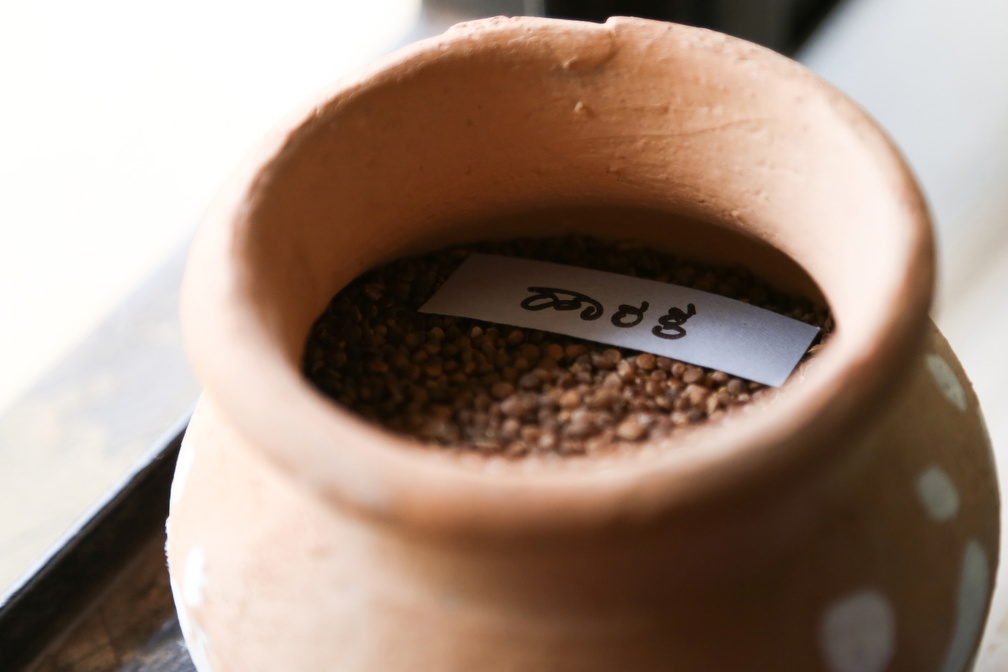Indian farmers denounce UN Seed Treaty’s attempts to hand over people’s seed heritage to private companies

PRESS RELEASE | 26 OCTOBER, NEW DELHI
More than 50 Indian Farmers’ groups from the Indian Coordination Committee of Farmers Movements (ICCFM) [1], have expressed concern over the proceedings of the International Treaty on Plant Genetic Resources for Food & Agriculture (ITPGRFA) [2] in a letter submitted to Mr. RK Singh, the treaty’s national focal point in India today [3].Farmers claim there was no national consultation process at India level and demands for an urgent meeting with the farmers community before the next round of negotiations.
The UN Treaty is up for discussion at the 7th Governing Body (GB) session scheduled between 30th October and 3rdNovember 2017 at Kigali, Rwanda.
As the Indian government prepares to present its position at this important conference, farmers’ groups are disappointed that the Government has not communicated it’s statement with them or asked for any suggestions, despite the fact that the Treaty makes it mandatory for farmers to be an integral part of the decision-making process.
Under its aims to promote conservation and sustainable use of plant genetic material for food and agriculture, the Treaty established a Global Information System on Plant Genetic Resources by collecting seeds from across the world,to provide farmers, scientists and the private sector access to the same.Much of the exhaustive collection of the Treaty’s seed banks, the Multilateral System, is held by the Consultative Group on International Agricultural Research (CGIAR), which farmers say is a known lobby-group for the world’s largest agri-businesses and GMO companies.
“These seeds are a public heritage that farmers have developed over millennia.Apart from the bio-piracy threat posed by CGIAR, the Treaty is now considering digitalizing the genetic information of the seeds in these seed banks which will make it easier for private companies to patent native genetic information, which will mean a certain death of the Treaty” said Tanmay Joshi, of Nagpur Beejotsav Gat and Shetkari Sanghthan.
Though there is a clause that any commercial benefits arising out of the use of these materials should be shared with the countries where they have originated, there is no legally binding obligation. Indian farmers are thus made even more vulnerable in this era of rampant bio-piracy practiced by large agri-businesses.
Farmers groups are dissuading the Government from entering into any collaboration with the multilateral Global Information System or the DivSeek programme, both of which are aimed at dematerialising peasant seeds by converting it into data of their genetic information, until stronger provisions are made for safeguarding their rights over seeds and against intellectual property rights.
“We hope that our concerns are well heard and acted upon. Upholding the democratic principles that lie within our constitution, we expect and request our Government representatives to have prior discussions with us before presenting at international conferences. Our seed security is at stake”, said Yudhvir Singh, convener of the AICCFM.
India is a megadiverse nation of rich plant genetic heritage with thousands of varieties in each food crop species. Many of these native crops have proven traits against the effects of climate change like droughts, floods, submergence and salinity. Efforts should be taken to protect, preserve and promote their cultivation without any risks of private patent restrictions. The Kigali Conference will determine whether India’s food sovereignty and the natural rights of our food producers can be protected at the global level.
Contact Information for Interviews
1. Yudhvir Singh– +91-9868146405; Email: yudhvir55@yahoo.com
2. Tanmay Joshi– +91-8087502186; Email: tanmay_sj@yahoo.com
Notes
[1] The Indian Coordaintion Committee of Farmers movements is a national alliance of mass based farmers movements formed in early 1990s and comprises of big farmers movements such as Bhartiya Kisan Union, Karnataka Rajya Raitha Sangha, The Tamilaga Vyavasayigal Sangam, Shetkari Sanghatna and Kerala Coconut Growers Association . Collectively they represent more than 300 million farmers nationally.
[2] The objectives of the International Treaty on Plant Genetic Resources for Food and Agriculture are the conservation and sustainable use of all plant genetic resources for food and agriculture and the fair and equitable sharing of the benefits arising out of their use, in harmony with the Convention on Biological Diversity, for sustainable agriculture and food security. See: http://www.fao.org/plant-treaty/en/
[3] Mr. R.K. SINGH is the Indian focal point for the treaty –
Department of Agriculture and Cooperation
Joint Secretary (Seeds)
Krishi Bhavan
New Delhi – India
Phone Number: +91 1123389241
Fax Number: +91 1123387669
Email Address: jsseeds-agri@nic.in
Link to the Original Letter –http://lvcsouthasia.blogspot.in/2017/10/indian-peasants-write-to-goi-on-matters.html
